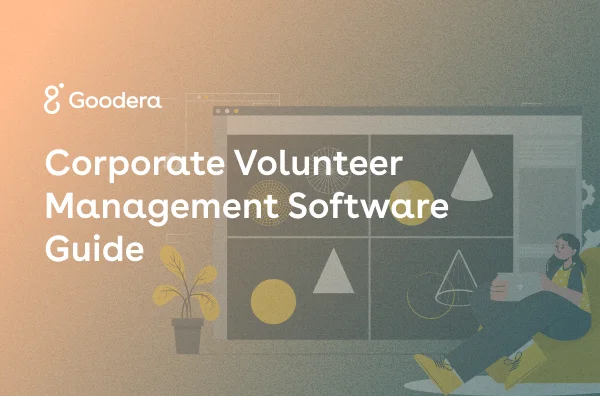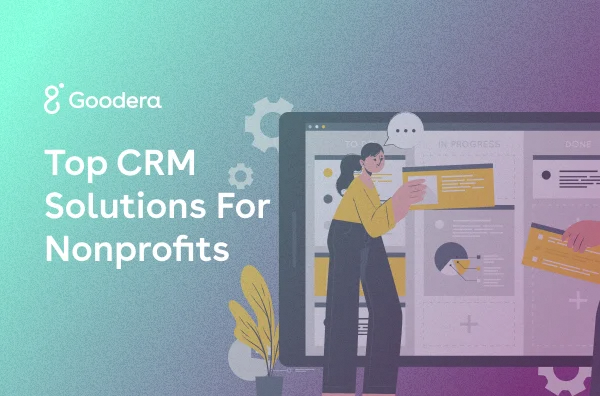Top 10 AAPI Nonprofit Organizations To Volunteer For In 2025
There’s something deeply fulfilling about giving your time to a cause that matters. Whether it’s tutoring a young student, delivering meals to an elderly neighbor, or offering professional skills to a nonprofit, volunteering reminds us of our shared humanity.
AAPI organizations across the U.S. are creating a lasting impact in communities, often quietly and consistently. From legal advocacy to mental health support to cultural preservation, these Asian American nonprofit organizations are doing powerful work and need volunteers like you.
We’ve rounded up 10 impactful Asian American organizations and AAPI nonprofits offering both virtual and in-person volunteering opportunities. These groups serve and empower the AAPI community all year round.
AAPI Volunteer Opportunities You Can Join Virtually
1. Queens Community House: AAPI Volunteer Opportunities Supporting NYC’s Diverse Communities
📍 Location: Queens, New York
Queens Community House (QCH) is a hub of community empowerment in one of the most ethnically diverse counties in the United States. QCH offers services for youth, seniors, immigrants, and families — with virtual roles that help extend their impact citywide.
Focus Areas
- Youth mentorship and tutoring
- Immigrant and refugee support
- Virtual outreach and translation assistance
How to Get Involved
Volunteers can tutor students remotely, support digital events, or help with virtual community engagement and outreach—all from the comfort of their home.
2. Asian Youth Center: Virtual Volunteer Opportunities for AAPI Youth Empowerment
📍 Location: Los Angeles, California
The Asian Youth Center (AYC) empowers low-income Asian American youth with the tools for success. They provide educational and employment services designed to break cycles of poverty.
Focus Areas
- Virtual academic tutoring
- Resume and job skills coaching
- Cultural enrichment and mentorship
How to Get Involved
Remote volunteers can help students with homework, lead career-readiness workshops, or serve as virtual mentors for high school and college-aged participants.
3. My Sister’s House: Remote Volunteer Roles Supporting AAPI Survivors
📍 Location: Sacramento, California
My Sister’s House offers a culturally appropriate safe space for Asian and Pacific Islander women and children affected by domestic violence, human trafficking, and sexual assault.
Focus Areas
- Victim support and advocacy
- Mental health and empowerment programs
- Anti-trafficking awareness and outreach
How to Get Involved
Virtual volunteers assist with hotline support, translation, graphic design for awareness campaigns, and online fundraising.
4. Asian Law Alliance: Remote Legal Volunteering for Asian American Communities
📍 Location: San Jose, California
For over 40 years, the Asian Law Alliance has defended the legal rights of underserved Asian Pacific Islanders. Their virtual programs expand access to justice for low-income communities in Silicon Valley.
Focus Areas
- Legal aid and civil rights advocacy
- Immigrant and housing justice
- Community education and outreach
How to Get Involved
Remote roles include administrative assistance, translation, virtual legal clinics, and digital marketing support for educational programs.
5. AALDEF: AAPI Volunteer Opportunities in Civil Rights and Policy Advocacy
📍 Location: New York, New York
The Asian American Legal Defense and Education Fund (AALDEF) is a leading Asian American nonprofit organization fighting systemic injustice through litigation, education, and civic engagement.
Focus Areas
- Voter rights and democracy
- Anti-Asian hate and racial justice
- Labor and immigration law
How to Get Involved
Volunteers can contribute to research projects, help monitor elections, translate educational materials, or assist in remote policy campaigns.
In-Person AAPI Organizations Driving Local Impact
If you're looking to connect with your community while making a tangible difference, these Asian American nonprofit organizations offer meaningful in-person AAPI volunteer opportunities. Whether it's packing meals, mentoring youth, or revitalizing neighborhoods, these nonprofits invite you to show up and stand with the AAPI community.
6. Koreatown Youth and Community Center (KYCC): Empowering Asian American Youth in Los Angeles
📍 Location: Los Angeles, California
Founded in 1975, the Koreatown Youth and Community Center (KYCC) supports underserved children and families in one of LA’s most vibrant neighborhoods. As a leading Asian nonprofit organization, KYCC provides direct services to youth, immigrants, and low-income residents.
Focus Areas
- Education and youth development
- Mental health and wellness
- Affordable housing and financial literacy
How to Get Involved
Volunteers can help with tutoring, mentoring, park cleanups, or community events focused on education and health. KYCC regularly hosts neighborhood revitalization and outreach programs needing local volunteer support.
7. Celebrate Your Talent: Inclusive Volunteering for Neurodiverse AAPI Individuals
📍 Location: Las Vegas, Nevada
Celebrate Your Talent is a unique AAPI-led organization focused on Twice-Exceptional individuals — people who are both gifted and have learning differences. Their inclusive educational programs create safe, non-verbal spaces for growth and connection.
Focus Areas
- Inclusive education and creativity
- Mental health support and therapy alternatives
- AAPI neurodiversity advocacy
How to Get Involved
In-person volunteers are needed for art-based workshops, sensory-friendly events, and 1:1 support for children and adults with diverse learning needs.
8. Heart of Dinner: Combatting Elderly Isolation in the Asian American Community
📍 Location: New York, New York
Heart of Dinner tackles food insecurity and loneliness among elderly Asian Americans. Volunteers help deliver care packages filled with culturally appropriate meals and handwritten letters in the recipients’ native language.
Focus Areas
- Food access and meal delivery
- Elder care and emotional wellness
- AAPI cultural preservation and connection
How to Get Involved
Join their in-person volunteer team to prepare meals, decorate delivery bags, write notes in Chinese, Korean, or Japanese, and make heartfelt home deliveries across New York City.
9. Faith & Community Empowerment (FACE): Strengthening Asian American Faith-Based Communities
📍 Location: Los Angeles, California
Faith & Community Empowerment (FACE) builds bridges between Asian American churches, civic organizations, and local governments to tackle systemic issues in housing, health, and education.
Focus Areas
- Faith-based civic engagement
- Economic empowerment and housing
- AAPI community development
How to Get Involved
FACE offers in-person AAPI volunteer opportunities in hosting events, supporting workshops, helping with voter registration drives, and working alongside faith leaders on community-based initiatives.
10. Little Tokyo Service Center (LTSC): Preserving Japanese American Culture in LA
📍 Location: Los Angeles, California
The Little Tokyo Service Center (LTSC) is a cornerstone of the Japanese American community in Southern California. This nonprofit provides housing, senior care, youth programs, and cultural initiatives while championing social justice.
Focus Areas
- Affordable housing and senior services
- Cultural and historical preservation
- Social justice advocacy for AAPI communities
How to Get Involved
Volunteers help organize community events, support senior wellness programs, assist in advocacy campaigns, or lend a hand in preserving Little Tokyo’s cultural legacy.
These non-profit organizations are making a significant impact on the AAPI community in the United States. From cultural preservation to legal advocacy, these Asian American organizations address critical challenges while empowering future generations.
Why Volunteer with Goodera?
As we celebrate AAPI Heritage Month, there’s no better time to uplift and support the incredible work of Asian American organizations and Asian nonprofit organizations across the country. Whether you're looking to give back virtually or in person, Goodera makes it easy for individuals and teams to get involved.
At Goodera, we partner with more than 50,000 vetted nonprofits worldwide, including the AAPI organizations featured above, to create meaningful volunteer experiences. Each of these Asian nonprofit organizations is committed to advancing diversity, equity, and inclusion. Your time and support can help move their missions forward.
We take care of the logistics so you can focus on creating impact. From curating cause-based opportunities and managing event operations to promoting and hosting events in over 20 languages across more than 100 countries, Goodera makes volunteering seamless and accessible for everyone.
Join us in making a real difference this AAPI Heritage Month. Sign up with Goodera to volunteer with purpose and be part of a global movement empowering the AAPI community.
Frequently Asked Questions
1. Why is it important to support AAPI-led organizations year-round and not just during awareness months?
While Asian American and Pacific Islander Heritage Month in May shines a spotlight on AAPI communities, their needs and contributions extend far beyond a single month. Many AAPI-led nonprofits address ongoing issues such as racial equity, immigrant rights, language access, cultural preservation, and representation in media and politics. Supporting these organizations year-round helps sustain their programs, fund advocacy efforts, and ensure they can respond quickly to emerging challenges like hate crimes or policy changes. Consistent engagement also deepens your relationship with the community, moving beyond symbolic gestures toward long-term allyship.
2. What types of initiatives do AAPI nonprofits typically focus on?
AAPI nonprofits have diverse focus areas depending on their mission and community needs. Some provide direct services like legal aid for immigrants, mental health counseling in native languages, and job training for underrepresented groups. Others work on advocacy — pushing for policy reforms on voting rights, education equity, and anti-discrimination laws. Cultural organizations often promote heritage through festivals, art exhibits, and educational programs, while community-based groups address urgent needs like food insecurity or housing assistance. By supporting a range of initiatives, you help strengthen the economic, cultural, and political fabric of AAPI communities.
3. How can individuals outside the AAPI community support these organizations meaningfully?
Allyship starts with listening, learning, and amplifying AAPI voices. You can begin by educating yourself on AAPI history and the systemic challenges these communities face. From there, engage directly — attend events, share their campaigns on social media, donate funds or skills, and volunteer your time. Importantly, let the organizations lead the conversation about what support they need, rather than assuming. Choosing AAPI vendors for events, reading and promoting AAPI authors, or advocating for inclusive workplace policies are also impactful ways to extend your support beyond financial contributions.
4. Are corporate partnerships with AAPI organizations effective?
Yes — when done thoughtfully, corporate partnerships can significantly increase the reach and impact of AAPI organizations. These collaborations can bring in funding, resources, and visibility, while also helping companies advance their diversity, equity, and inclusion (DEI) goals. The most successful partnerships are those that are mutually beneficial and rooted in respect for the nonprofit’s mission. For example, a company might sponsor cultural programming, provide pro bono services, or run employee volunteer events led by AAPI organizations. Long-term commitments often yield deeper community trust than one-off sponsorships.
5. How can I find trustworthy AAPI organizations to donate to?
Start with reputable nonprofit directories such as GuideStar, Charity Navigator, or local community foundations that curate vetted lists of AAPI-led organizations. The blog you’re reading already highlights several impactful options, but you can also look into groups with a clear mission statement, transparent financials, and visible community engagement. Social media can be another useful tool — many grassroots AAPI organizations share real-time updates about their work, events, and impact, giving you a better sense of how your contributions will be used.












